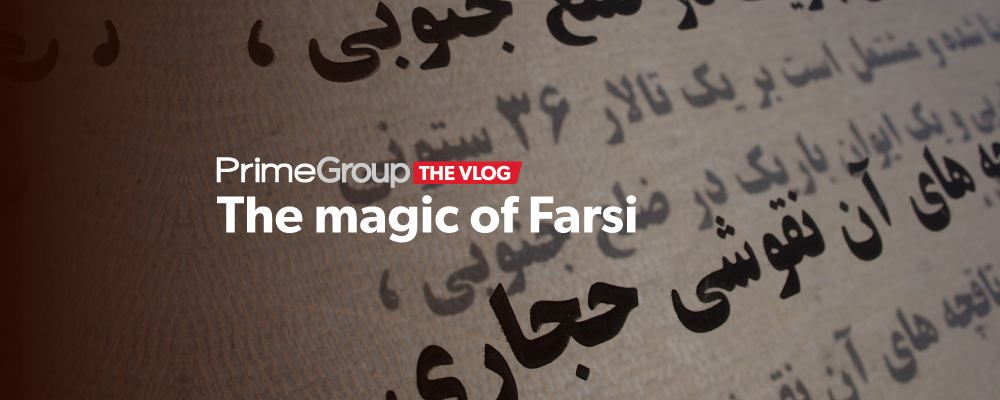Did you know that during the times of the French Revolution, just over 10% of the country’s population spoke French? Oui, c’est vrai. French was the language of Paris, spoken by a minority with power and money formed by the monarchy, nobility, and bourgeoisie, while the people spoke no fewer than 800 dialects and languages. Don’t leave, I’ll tell you how the French state gradually destroyed this Tower of Babel to make this language one of the most important in the world.

Before the French Revolution broke out in 1789, the kingdom of France was a linguistic mosaic where French was largely a foreign language, spoken by only 10% of a population of 25 million people. French was the heritage of the rich and powerful—the king, the court, the nobility, and wealthy merchants. In Europe, French was also learned in the courts and palaces from London to Brussels or The Hague. But the common people outside Paris, did not speak French.
Everything changed when the absolute monarchy was defeated, and King Louis XVI was guillotined by the revolutionaries. The establishment of a republican government meant that for the first time, the term nation was associated with language. From that point on, language became a matter of state, and it was urgent for the emerging, united, and indivisible republic to have a national language. That is, the slogan of Liberty, Fraternity, and Equality could not be reconciled with a France where its citizens did not understand each other because they spoke so many languages, such as Langue d’Oc, Occitan, Arpitan, Alsatian, Flemish, Breton, Catalan, Basque, and hundreds of dialects.
After a brief phase of tolerance, the revolutionaries decreed that it was necessary to literally ‘extirpate the coarse languages that prolong the infancy of reason and the old age of prejudice.’ In other words, the patois or dialects had to be eliminated. Speaking French was to strengthen democracy; forgetting dialects was to free oneself from domination and dependence.
The French linguistic terror did not succeed. Besides the resistance of the population, the destruction of churches and convents ended up destroying schools and colleges, while the state had no means to open republican schools with French teachers.

With the arrival of Napoleon through a coup d’etat, this linguistic extremism was set aside because Napoleon himself, of Corsican origin, spoke that Italian dialect and actually learned French at the age of 15.
However, French was spreading through the mandatory military service imposed by Napoleon to nourish the armies with which he invaded much of Europe. French entered with military orders and then penetrated the family with the soldier returning home. Even so, in 1810, French was spoken in only 25 departments or territorial divisions out of a total of 130.
By the mid-19th century, 7.5 million French people, or 20% of the population, spoke French fluently.
Gradually, there was a campaign to discredit languages considered patois; for example, there were signs in Brittany that read, “Speaking Breton and spitting on the ground prohibited.” Throughout France, there were slogans to reject the mother tongue and embrace French.
But it was at the end of the 19th century that a minister named Jules Ferry ordered that all schools in the republic be secular, taking control of education away from the church, and French was imposed at all educational levels. Politically, France’s expansion in North Africa, Sub-Saharan Africa, and Southeast Asia was accompanied by the spread of the language. French also became the language of diplomacy. French settlers in Quebec and Louisiana maintained a dialectal French that still survives today. In the case of Haiti, the Creole French of those black slaves who became independent at the end of the 18th century still exists today.
Returning to France, the fact is that by the beginning of the 20th century, with World War I, 80% of the population spoke French correctly. Currently, 80 million people have French as their mother tongue, and 140 million as a second language. La Francophonie includes them in its statistics; for example, high school students from Albania or Romania would enter that statistic. Questionable, but the fact is that there are 29 countries in the world that have French as an official language.
France takes care of its language like few countries.
On the one hand, the French Academy, founded in 1635, continues to work today to preserve the purity of the language by publishing the official French language dictionary. Composed of 40 members, known as “immortals,” the Academy is the authority that defines the spelling, grammatical, and lexical rules of French.
On the other hand, since 1994, the Toubon Law requires that all products, advertising, media, and contracts be in French.
And you may wonder, what is the situation of Regional Languages today?
Well, despite efforts to suppress regional languages, several of them are still spoken in certain areas of France. For example, Breton is still spoken in the Brittany region, and Alsatian in the Alsace region. Corsican is spoken by more than 100,000 people on the island of Corsica. Basque or Euskera is spoken by about 50,000 people in the southwest of the country, while it is estimated that Catalan is the language of about 60,000 people in the Occitania region. Although Catalan enjoys high status and active protection in Spain, the same is not true in France. However, in 2008, the French Constitution was amended to recognize regional languages as part of France’s heritage.



